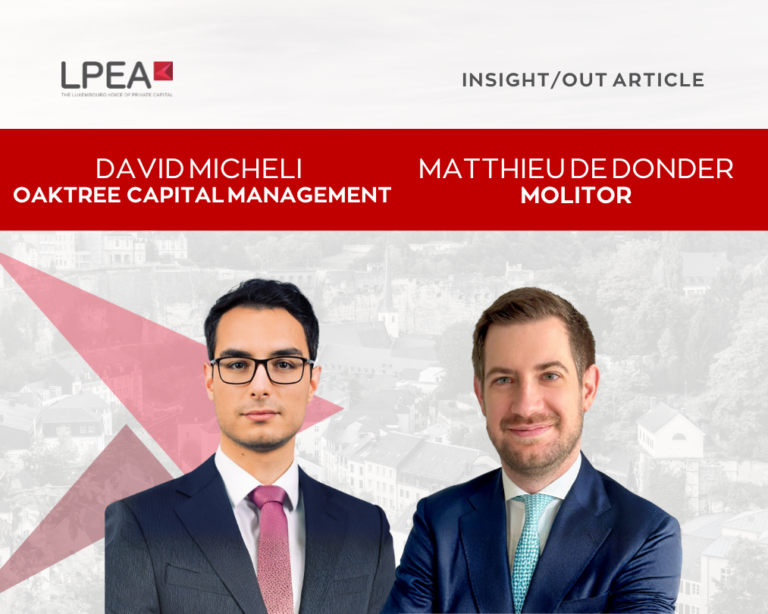Aïssata Coulibaly, Associate Partner (Private Equity, EY Luxembourg).
(Photo: EY Luxembourg)
Article by Alex Barras for Paperjam.
Could Africa become the future hub for private equity? Yes, according to the future prospects of this continent and its evolution over the last few years.
For a long time ignored by investors, the African continent seems, in recent years, to be arousing growing interest in investment funds, particularly private equity. This is what the 2019 annual activity report of the Association of African Private Equity and Venture Capital Companies (AVCA) reveals.
During 2019, $3.8 billion was raised by funds active on the continent with a total of 198 transactions. This volume is the highest since 2014. With a total of 350 million middle-class consumers and representing a growth locomotive, Africa is thus becoming a continent increasingly sought after by sophisticated investors.
“It is important to remember that we are not talking about Africa, but about a continent of 54 states with very different economic situations,” explains Aïssata Coulibaly, associate partner in the Private Equity department at EY Luxembourg and head of the Africa segment. This craze for private equity in Africa can be explained by the significant returns generated by this asset class over the last 10 years on the continent, which remains a land of opportunities, technological innovation and entrepreneurial dynamism. Despite an economic growth of 3.9% on average over 2019, according to the African Development Bank, the African continent remains the least advanced in terms of sustainable development goals set by the UN, which translates into financing needs estimated by the World Bank at $90 billion per year over the next 20 years. It is now up to investment funds to seize the opportunities offered by private equity throughout the continent!”.
Promising prospects for the future
15 to 20 billion dollars are granted annually in credit in Africa, while the real demand is around 145 billion dollars, estimates the International Monetary Fund. A gap that the private equity industry is helping to fill.
“The infrastructure needs in Africa are huge. Since the governments of African countries are not able to ensure the full financing of these needs, there is therefore a perennial opportunity for investors to turn to a fast-growing and little-exploited African market,” explains Aïssata Coulibaly.
Between 2018 and 2019, the VCA report reveals that fundraising associated with private equity in Africa increased by $1.1 billion to $3.8 billion. “This volume remains modest compared to other emerging markets, but still illustrates the growing appetite for African private equity”.
According to the World Bank, nearly one in four people will live in sub-Saharan Africa in 2050, up from one in 13 in 1960. For the associate partner of EY, “this demographic perspective constitutes an important growth opportunity with a potential highly productive active population with a large savings capacity. The entry into force of the African continental free trade zone will also significantly facilitate intra-African trade, which in turn will generate significant returns on investment”.
Today, the African continent can count on a few locomotives, including Ethiopia, Rwanda, Côte d’Ivoire and Tanzania. “In the latest edition of the EY barometer dedicated to the attractiveness of Africa, published at the end of 2019, we noted that the countries that attracted the most investments, beyond private equity, in 2018, were Egypt ($12 billion), South Africa and Morocco ($5 billion each),” shares Aïssata Coulibaly. On the investor side, China is in first place with a total investment of $72.2 billion spread over 259 projects across the continent.
If the cradle of humanity is a source of significant opportunities, it is nevertheless the case that its various markets are more attractive to seasoned investors, aware of the risks inherent to the continent’s specificities. For Aïssata Coulibaly, “even if the region’s image has improved considerably in recent years, concerns remain, particularly with regard to political risk and foreign exchange risk, which contribute to some volatility in African markets. It is crucial for prospective investors to diversify their portfolios accordingly.”
Technology, Agriculture and Infrastructure
The prevailing optimism regarding the evolution of private equity on the African continent is quite meaningful. The opportunities are indeed immense, the potential real and, moreover, sustainable.
“The overall internal rates of return calculated on the Africa funds of several development financial institutions have shown better levels of profitability than those achieved by some more mature markets”, assures Aïssata Coulibaly, also a member of LuxAfrica. This association promotes the attractiveness of Africa and the creation of bridges between Luxembourg and African investment professionals.
“One of the major objectives of the association is to build a knowledge base for members containing accurate and useful information on the African business environment. The association aspires to provide its members with a value-added professional networking environment through the sharing of concrete experiences on the continent”.
Technology is one of the sectors in which the volume of investment has increased in recent years. Many African private equity players have indeed specialized in technology investment, contributing to the development of advanced technologies that help meet many basic needs, such as health care and education.
“Beyond the strong emergence of innovation capital, which is strongly imposing itself in investment strategies on the continent, there is also a growing interest in agritech and renewable energies. For investors, it is a question of identifying sectors with high potential for value creation and performance”. All this, while integrating environmental, social and governance (ESG) criteria.
“There is a common misconception that GSS criteria have little or no resonance in Africa. However, at the genesis of African private equity, development financial institutions considered this asset class as a leveraging tool to multiply the reach of their financing, says Aïssata Coulibaly. In times of crisis, such as the one we are currently experiencing, this consideration of ESG criteria promotes governance capable of triggering and supporting the transformation of the continent while allowing African private equity to be considerably resilient”.
African private equity has generally shown responsiveness at the onset of the health crisis and will need to demonstrate its resilience in the coming months and years. “The impact of Covid will have to be analyzed from two aspects. Firstly, some funds with underperforming investment portfolios will have to stop their activity due to their lack of financing and fund raising that will not have been successful, explains Aïssata Coulibaly. Conversely, experienced managers, who have a good knowledge of the specificities of private equity on the continent, will manage to make the most of the investment opportunities offered by the crisis”.
According to the Covid survey recently published by the AVCA and carried out among fund managers operating on the African continent, 49% of the managers surveyed indicated that they could deploy their capital between 6 and 12 months after the initially planned deadlines. “This shows the dynamism of the industry on the continent in the current context”, concludes Aïssata Coulibaly.




